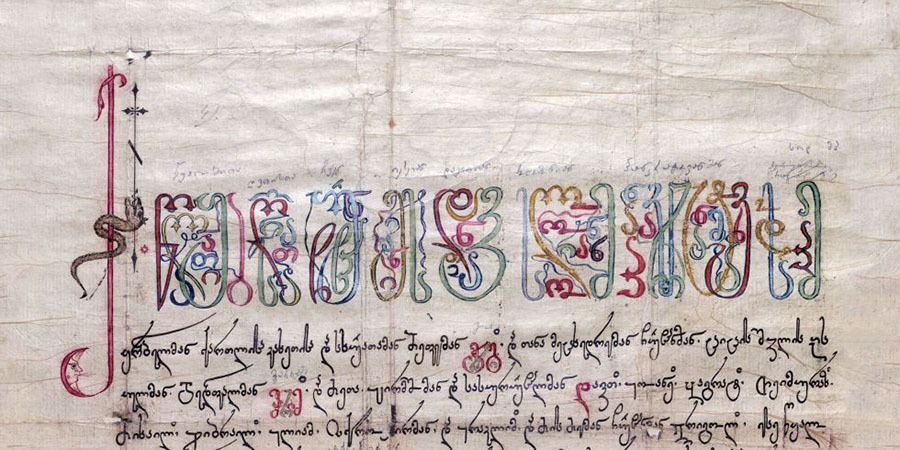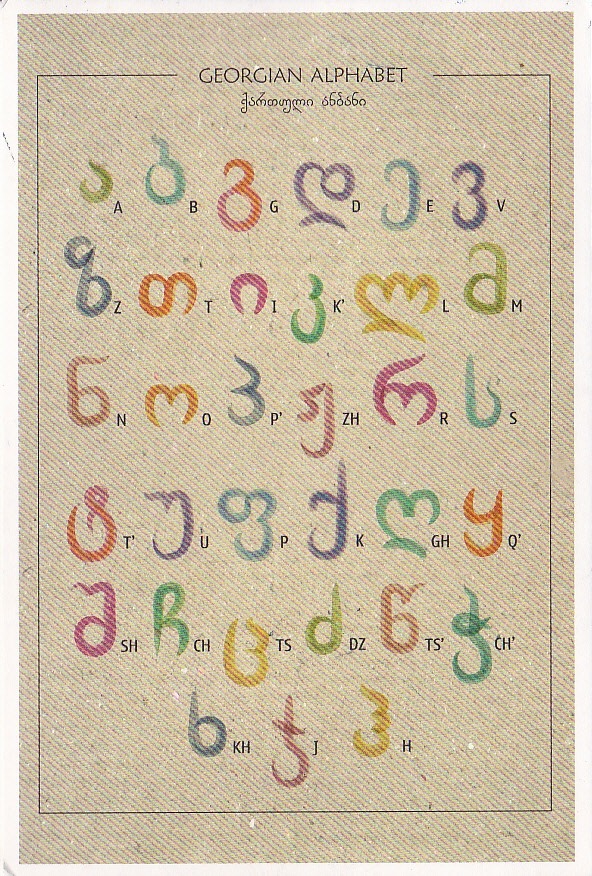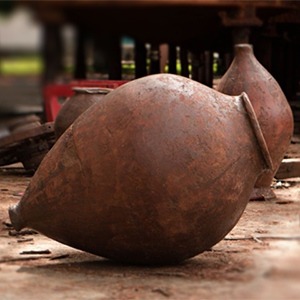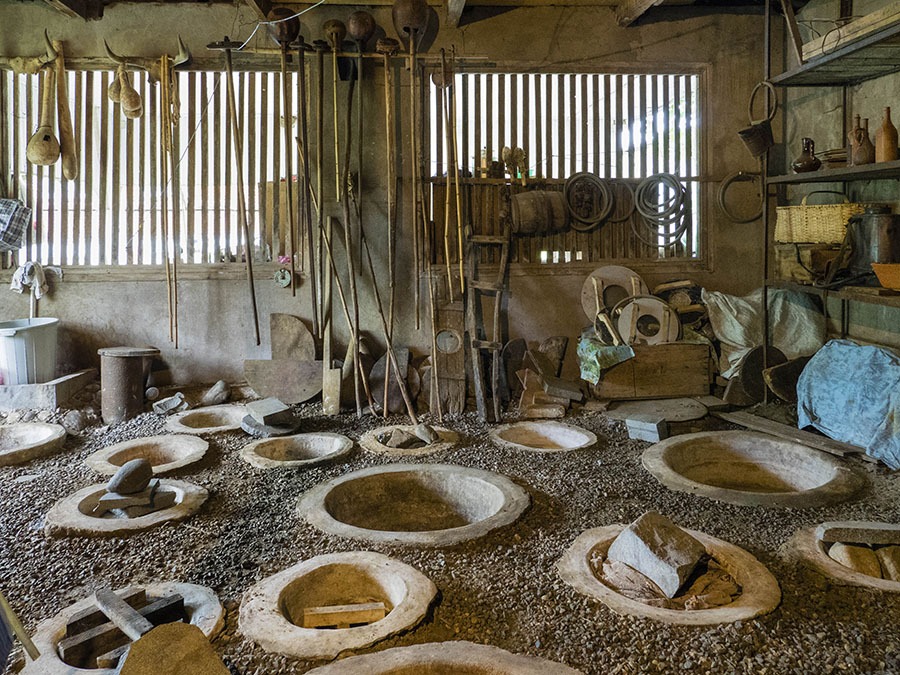“Georgia’s intricate toasts are really social rituals, elaborating shared history and national identity through the experience of a meal, reminding family and friends of kinship even as newcomers are welcomed into the fold.”
in The Georgian Feast by Darra Goldstein
Language
Georgian: A language all its own
Georgian, the official language of Georgia, is one of the world’s oldest spoken languages. Indigenous to the South Caucasus region, it is a language all its own, with its own distinctive sound and script. Georgian represents the largest branch of the Kartvelian language family, which is unrelated to any other language family.
One interesting feature of Georgian grammar is that it has no gender—even the pronouns are gender neutral.
Writing system
The Georgian writing system dates back at least to the first century BCE. The alphabet is now in its third iteration. Each iteration is a simplified version of the one before it. The modern Georgian script, known as Mkhedruli, first appeared in the 10th century.
The best examples of ancient Georgian writing are found in carvings in the walls of old churches. The oldest such inscription dates to 430 AD. The first Georgian-language book using movable-type printing was a Georgian–Italian dictionary printed in Rome in 1629.

Alphabet

The modern Georgian alphabet has 33 letters—five vowels and 28 consonants—and are written in a single case, not upper- and lowercase. The script features rounded letters with curlicues reminiscent of the tendrils of grapevines.
In 2016, UNESCO added the Georgian alphabet to its list of humanity’s items of intangible cultural heritage.
Wine vocabulary
Here are a few helpful Georgian words related to wine and winemaking:
• chacha = grape skins; also, a clear distilled beverage made from the skins
• gaumarjos = “cheers” (to victory)
• ghvino (or gvino) = wine
• klerti = grape stems
• madloba = thank you
• marani = wine cellar
• orgo = qvevri lid (traditionally made from wood or stone, now commonly glass or metal)
• qvevri = traditional egg-shaped winemaking vessel (pronounced with a “kv” sound)
• satsnakheli = traditional wine press (usually carved from a single tree trunk or made of stone)
• supra = extravagant feast
• tamada = toastmaster
Note: For those traveling to Georgia, most street signs, restaurant menus, and traffic signs include an English translation. It is not necessary to know Georgian to easily travel within in Georgia.


